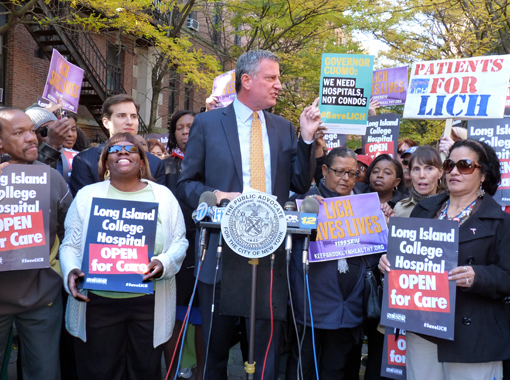Storm swirls around LICH bidder in Brooklyn, days before May 5 deadline
De Blasio voices concern; BHP under gag order

Bill de Blasio supporting LICH in October
The group negotiating to take over Brooklyn’s embattled Long Island College Hospital (LICH) from the State University of New York may have won the bidding war, but now they find themselves embroiled in a war of public perception.
If negotiations with SUNY are successful, on May 5 Brooklyn Health Partners (BHP), a California-based group, will plunk down a non-refundable $25 million deposit and move on to the next stage of approvals necessary to operate a hospital at the LICH site.
But an onslaught of negative articles about BHP’s viability and alleged plans to build 50-story towers, skepticism about SUNY’s bidding process, and an expression of doubt from none other than Mayor Bill de Blasio has BHP’s partners shaking their heads.
